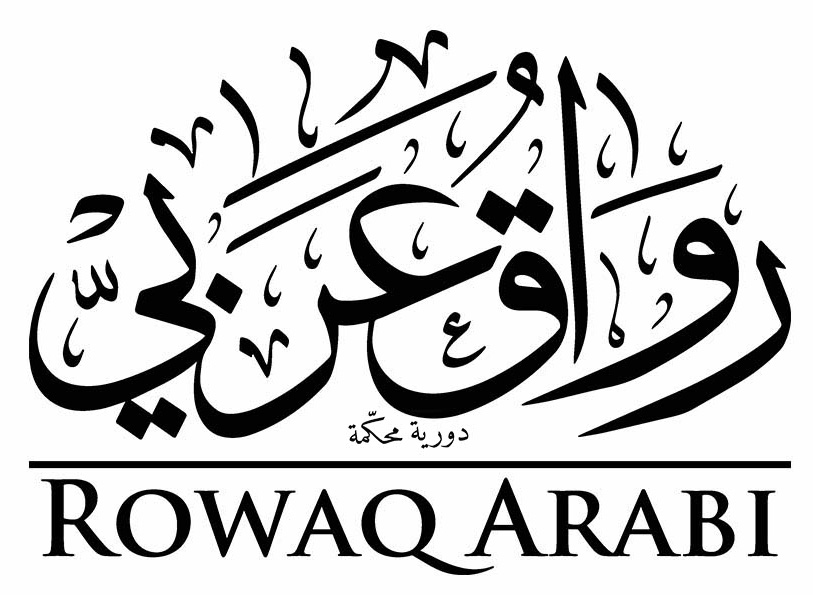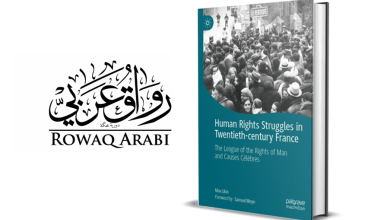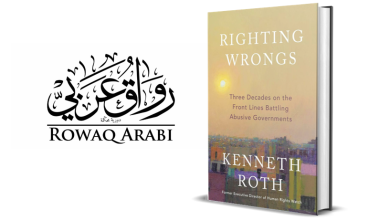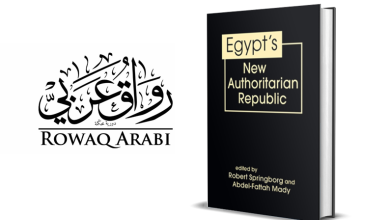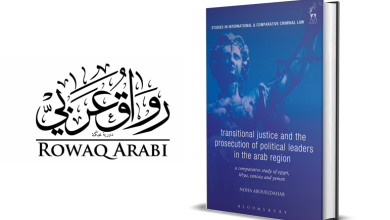Book Review – ‘Al-Haq: A Global History of the First Palestinian Human Rights Organization’ by Lynn Welchman
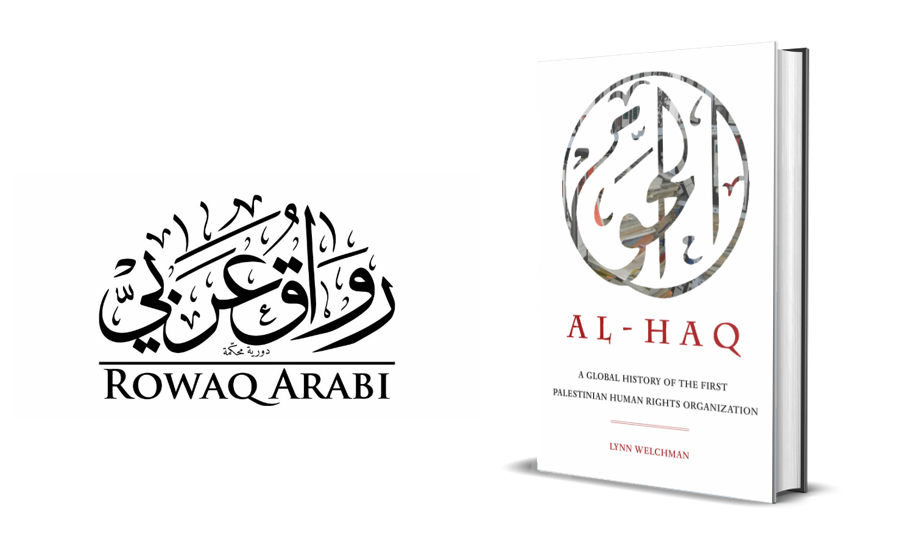
Citation: D’Hondt, Cedric (2024) ‘Book Review – ‘Al-Haq: A Global History of the First Palestinian Human Rights Organization’ by Lynn Welchman’, Rowaq Arabi 29 (2), pp. 13-16, DOI: 10.53833/KOTX8198.
In the early hours of 18 August 2022, a handful of Israeli military vehicles pulled alongside a building on Rukab Street in Ramallah. After forcing their entry into the building, the soldiers breached, searched and sealed the office on the second floor. The raid was another escalation to intimidate into silence a Palestinian civil society organisation that had been speaking out about violations of international law in the Occupied Palestinian Territories for over four decades.
These four decades of speaking truth to power are at the centre of the book Al-Haq: A Global History of the First Palestinian Human Rights Organisation by Lynn Welchman, Professor of Law at the London School of Oriental and African Studies (SOAS). As the author acknowledges herself, she has written her study from a privileged perspective of someone who has known the organisation from the inside. Yet, this does not mean that the book gives the view of a participant observer. As Welchman points out herself, placing a distance between herself and the object of her study, ‘those were different times’.[1]
Rather than the author’s experiences, the book relies on both public and unpublished documents from Al-Haq’s valuable archives, in addition to source material from other organisations, not in the least the International Commission of Jurists. Based on this variety of sources, the book gives a historical account from the early beginnings to what Al-Haq is today: an internationally acclaimed organisation that has shown itself to be incontournable when it comes to documenting human rights violations in the Occupied Palestinian Territories.
The book’s introduction clearly states that it does not present the longer history of Palestine or its people’s struggle. This does not make Welchman refrain from outlining, in the book’s first chapter, the context in which Al-Haq emerged. By taking the reader past pivotal years, in addition to explaining the challenges that legal professionals in the West Bank had to face under the Israeli occupation as from 1967, the book turns itself accessible to a wider audience that does not necessarily have a historical or legal background on international law and the Palestinian struggle for self-determination.
The book gives the reader a clear understanding of why and how Al-Haq emerged in 1979 as an affiliate of the Geneva-based International Commission of Jurists. Although the organisation started as ‘Law in the Service of Man’, a name that conveys the organisation’s commitment to upholding the rule of law in a nonpolitical way, it was phased out in favour of the name Al-Haq, which is more gender-neutral than the English translation of the initial name. The organisation’s nonpartisan commitment to the rule of law remained unchanged.
Welchman clearly explains how the organisation turned its mission into a methodological human rights praxis, which relies both on legal and field research. In doing so, the book discusses the dynamics that influenced Al-Haq as a pioneering Palestinian human rights organisation. Examples of this are, evidently, the Israeli occupation and the threats it poses to the organisation’s staff, as well as Al-Haq’s ‘identity crisis’[2] that ensued from the Oslo Accords, but also Al-Haq’s position as an organisation from the Global South within a human rights movement. In this regard, Welchman gives a thought-provoking quote from a UK lawyer who used to work at Al-Haq, decrying the patronising, white-saviourist behaviour of some international human rights groups that sent visiting delegations to the Occupied Palestinian Territories:
I’m not sure I was brave enough to use the word at the time but exploitation is the word that springs to mind. I felt very strongly that people came with models of how things should be and they were simply thinking about it in their terms, we need this information you’ve got, then we—the great, the good, the powerful—we can publish it and then we’ll make everything all right for you [ . . . ] Obviously I’m exaggerating the point, but there was a strong feeling that this was not a partnership or a collaboration, it was “we need this from you, we need the information, where is it?” Obviously some were better than others and you saw that quite clearly.[3]
The real strength of the book lies in the fact that it illustrates how Al-Haq engaged in ‘legal work’. Welchman refers herself, in the book’s introduction, to the work of Noura Erakat, Justice for Some, which ‘“explores the role and the potential of law in the pursuit of Palestinian freedom and applies Duncan Kennedy’s concept of “Legal Work” (“The Work that the legal actor performs to achieve a desired outcome”)’.[4] In their legal work, comprising both legal and field research, documentation and advocacy, Al-Haq continuously undressed Israel from what Raja Shehadeh, one of the organisation’s founders, referred to as the ‘legal garb’ used by the occupying power for ‘cloaking their brutality’.[5]
As Welchman’s study makes clear, Al-Haq has often been ahead of its time in its human rights work. Already in the 1985, Jonathan Kuttab, another founding member of Al-Haq, warned in a presentation to the Foreign Affairs Committee in the US House of Representatives that ‘a classic de facto apartheid system has thus been created, with two separate and differing structures, courts, residences and rights—one for Palestinian Arabs and another for Israeli Jews.’[6] Al-Haq already made comparisons with the apartheid rule in South Africa, long before Human Rights Watch would publish its seminal report A Threshold Crossed.[7]
Another example of how Al-Haq took the vanguard in exposing the legal structures created by Israel in justification of its colonial policies is when, in a 1984 publication, it called for a referral of Israel’s Road Plan for the West Bank to the International Court of Justice for an advisory opinion. Only two decades later, the International Court of Justice would render its advisory opinion on the Legal Consequences of the Construction of a Wall in the Occupied Palestinian Territory, in which the Court concluded that ‘the construction of the wall, and its associated régime, are contrary to international law’.[8]
If Welchman sheds a light on how Al-Haq contributed to ‘the wider legal debate on the development of International Humanitarian Law’[9], it only gives a cursory hint at the limits of the international legal system. While the book amply refers to further literature on the topic, Welchman does not take position herself. Only a hint of desperation shimmers through in a quote of Raja Shahedah, who reflects on the death of Sabri Gharib:[10] ‘For me, Sabri’s death marks the end of an era when it was possible to believe that law could save Palestinian land from Jewish settlers’.[11]
Indeed, Raja Shahedah’s disillusionment with the law in 2012 only becomes starker for anyone reading his words in 2024. Despite three orders by the International Court of Justice,[12] finding that violations of the rights enshrined under the Genocide Convention are ‘plausible’, the Israeli regime continues to indiscriminately massacre the civilian population of Gaza in what UN human rights expert Francesca Albanese has qualified as a genocide.[13] In her epilogue, Welchman quotes Al-Haq’s general director Shawan Jabarin, who stated in 2016 that ‘Palestine, in its legal and jurisprudential aspects, is a test for the whole system of international law’.[14]
A legal system unable to halt international crimes that are openly being committed is evidently failing the test. Although this desperation and disillusionment with the limited potential of international law can easily regress into outright cynicism, it does not reduce Al-Haq’s work to vanity. Even though two decades after the International Court of Justice’s advisory opinion the separation barrier still stands, and despite the fact that the Israeli war machine and its allies do not consider themselves limited by court orders from the Hague, Al-Haq has contributed to an international legal system under which South Africa, out of all states, felt compelled and convinced to bring a case against Israel.
These times, more than ever, show the relevance of human rights work that speaks truth to power. Welchman has provided an important historical account of an organisation that arose from its context and has managed to keep working within, and sometimes despite, its context, and that continues to shape a context that will equally leave a historical legacy.
[2] Ibid. p. 184.
[3] Ibid. p. 130.
[4] Ibid. p. 7.
[5] Ibid. p. 42.
[6] Ibid. p. 60.
[7] Human Rights Watch (2021) A Threshold Crossed: Israeli Authorities and the Crimes of Apartheid and Persecution, https://www.hrw.org/report/2021/04/27/threshold-crossed/israeli-authorities-and-crimes-apartheid-and-persecution.
[8] ICJ 9 July 2004, Legal Consequences of the Construction of a Wall in the Occupied Palestinian Territory, §142.
[9] Welchman, Lynn (2021), p. 10.
[10] Sabri Gharib is a Palestinian farmer who, despite being literally fenced in by an Israeli settlement, refused to give up is house. He passed away in 2012.
[11] Welchman, Lynn (2021), p. 149.
[12] ICJ 26 January 2024, 28 March 2024 and 24 May 2024, South Africa v. Israel: Application of the Convention on the Prevention and Punishment of the Crime of Genocide in the Gaza Strip.
[13] Albanese, Francesca (2024) Anatomy of a Genocide – Report of the Special Rapporteur on the situation of human rights in Palestinian territories occupied since 1967, A/HRC/55/73.
[14] Welchman, Lynn (2021), p. 226.
Read this post in: العربية
